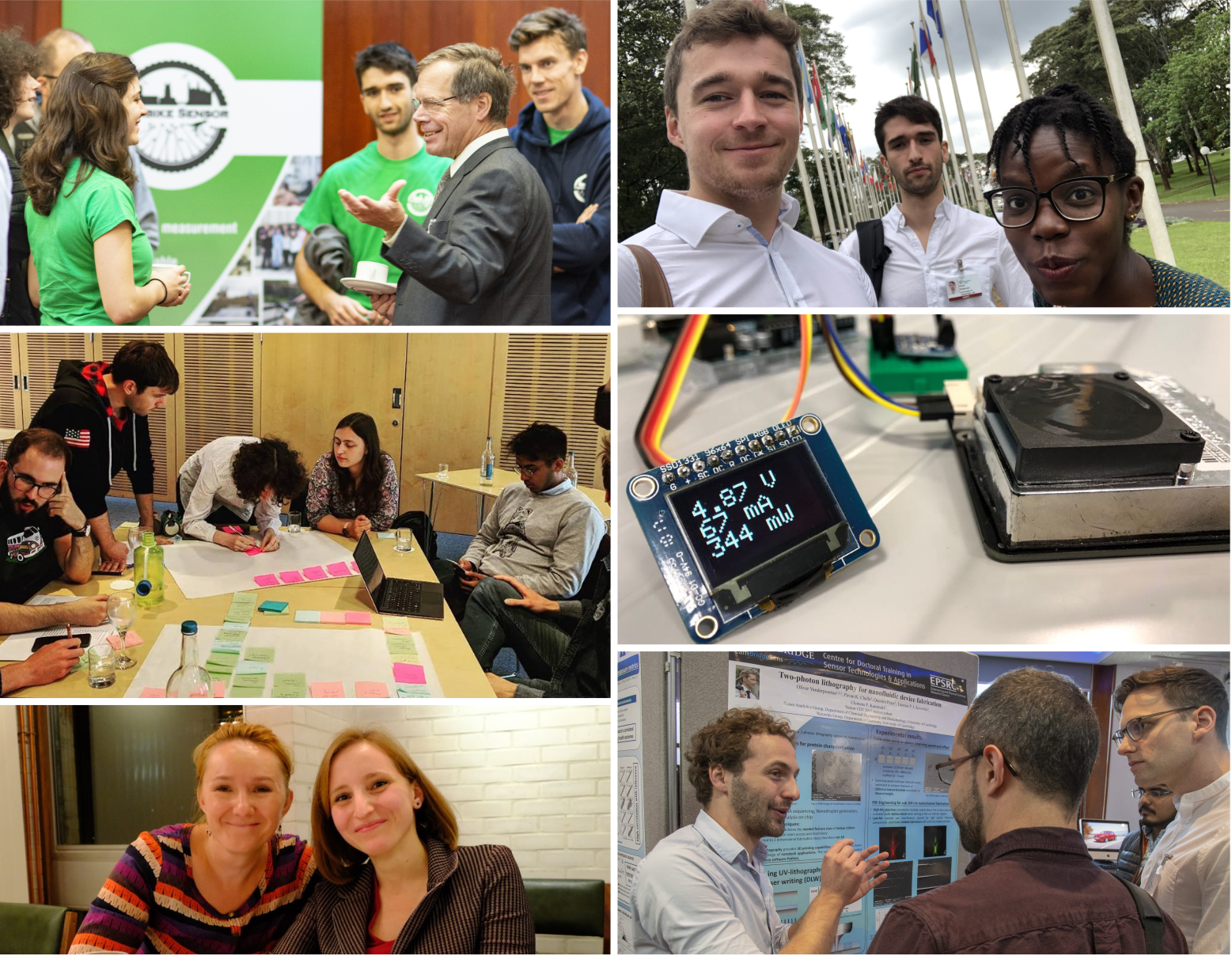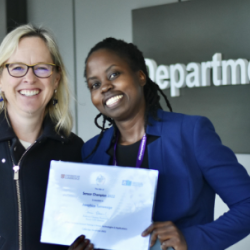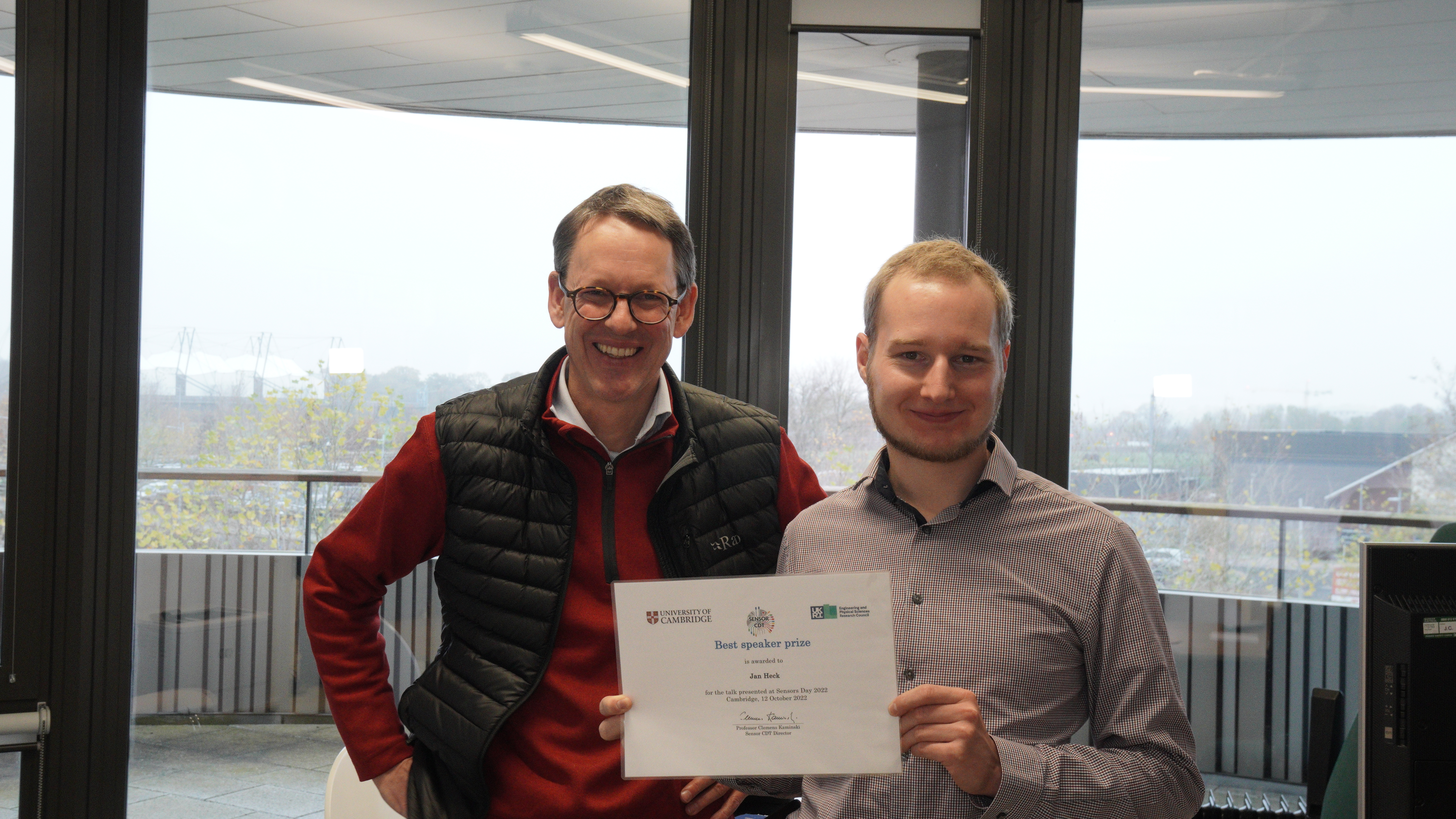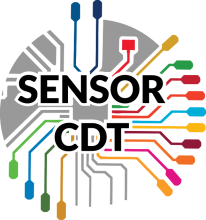
Submitted by A-M. Wolf-Perez on Tue, 24/01/2023 - 13:39
Why did you apply to the Sensor CDT? What is it like to be part of the Sensor CDT community? Hear from our current students: Tomas, Josephine, Jan and Francesca.
Tomas Paulik (2022 cohort)
"Unlike most students in my CDT cohort, I didn’t join the programme directly after my bachelor’s degree. I have returned to academia after a decade in the industry, where I worked as a senior software engineer at Microsoft and even led my own technology startup, which, at its peak, reached a valuation of £2.7m. Before applying to Sensor CDT, I was thinking about taking a sabbatical to get up to speed with the rapidly developing field of sensor-powered edge computing. It is an interdisciplinary field which involves various topics, ranging from on-device machine learning to sensor hardware design. After discovering the CDT programme, I was excited to learn how closely it matches my professional interests and gives students the opportunity to specialise in the area of sensing of their choice. Prior to moving to Cambridge, I was a little nervous as I was not sure whether the programme will truly enable me to learn new things, given my extensive industrial experience. Now that I am in the middle of my MRes year, I am very pleased to say that the CDT has exceeded my expectations. The lecturers and academics I have the opportunity to work with are world-leading experts in their fields. To me, the CDT is not just an academic programme – it is a platform for professional and personal growth, a place where I can exchange ideas with truly incredible people, and an inclusive environment which motivates towards academic excellence. Furthermore, unlike many other universities, Cambridge puts emphasis on positive societal impact of its research and commercialisation of the generated knowledge."
Josephine Tumwesige (cohort 2021)
"I chose the Sensor CDT because I felt I had not fully explored the University’s rich research environment during my MPhil. The MRes year of the CDT allowed me to explore my research interests further, enhance and gain new skills, and build a good support network in the form of my cohort, academics and the community at my college. The knowledge and skills gained in the first year have made my transition into the PhD uncomplicated. I built a good rapport with my supervisor; I know who to contact when I need specific support and am aware of as well as how to access the University’s vast resources. This foundation is unique to the Sensor CDT because of its multidisciplinary approach through extensive collaboration with other departments and research groups within and outside the University and industry. They ensure we exploit these collaborations by providing interdisciplinary modules, industry talks, research discussions with other cohorts, and sensor design, team and mini projects. Without ESPRC’s funding, the uniqueness of the Sensor CDT PhD programme its not possible, and more importantly, international students like me would not have the necessary foundation and support to pursue the PhD successfully."
Jan Heck (cohort 2018)
"Joining the Sensor CDT was a fantastic experience for me. I felt immediately welcomed by the Sensor CDT academics, staff, and everyone in my own cohort, as well as those in the years above me. The wide range of subjects I could dive into straight away was exciting. In contrast to writing PhD applications on my own, the Sensor CDT's first MRes year allowed me to meaningfully define the research I wanted to do while taking lectures, workshops and talking to the supportive network of academics and PhD students within the CDT.
In this way, the MRes year allowed me to start my PhD with confidence, and opened up a deeper understanding of the diverse and interdisciplinary research landscape that Cambridge University has to offer across its many departments.
The network of Sensor CDT students enabled me to explore and discuss research beyond my own field. The Sensor CDT does a great job at facilitating this exchange by organising their many cross-cohort events throughout the year, and the annual Sensors Day conference to showcase the varied research across all its students. Now, with my time at the CDT coming to an end, I truly enjoy sharing my experience with the next cohort of students, offering help and advice where I can, just as I received plenty of support when I joined the CDT."
Francesca van Tartwijk (cohort 2017)
"I previously studied Natural Sciences at the University of Cambridge, a degree that I chose for its breadth, as I’m interested in interdisciplinary approaches to studying biological systems. During my studies, I realised that technological advances enable new research to be established, and so I wanted to understand biophysical techniques in more depth. The Sensor CDT offered an interdisciplinary Masters with a strong technical component, which therefore appealed to me. In addition, I learnt a lot from my peers through the organisation of the CDT into smaller cohorts of students with diverse academic backgrounds. The MRes year therefore prepared me to work both independently and collaboratively in a multidisciplinary research group."




